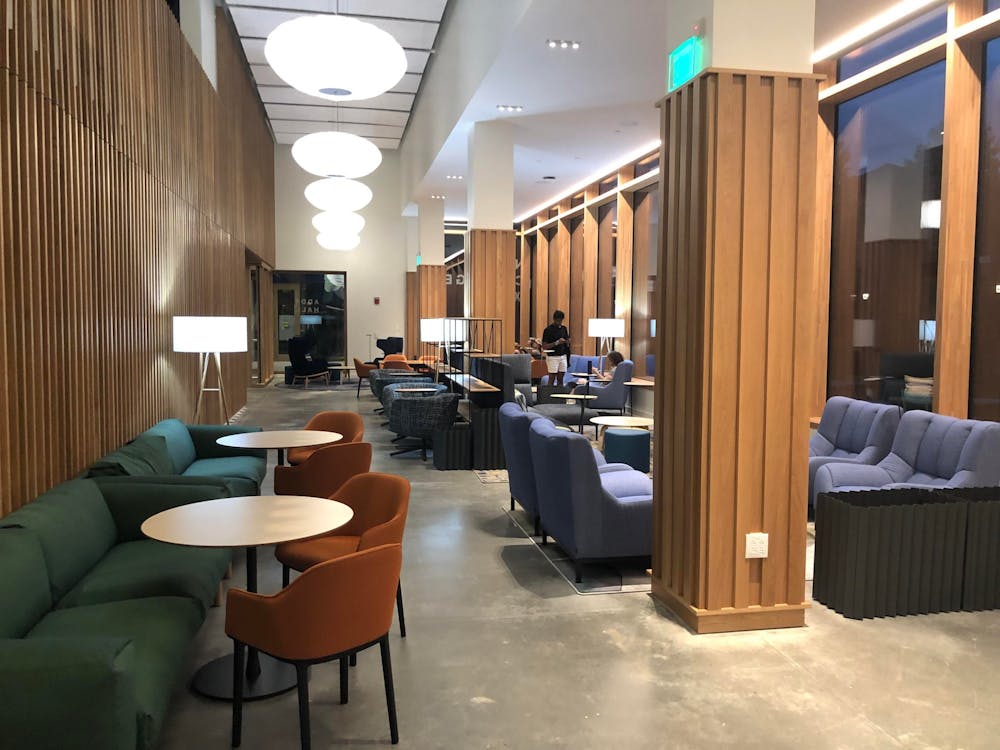Less than a week after undergraduate students voted against a divestment referendum, graduate students will have the opportunity to vote on a similar referendum this week from Wednesday through Friday, May 8.
The referendum calls upon the trustees of the University and the Princeton University Investment Company to “divest from multinational corporations that maintain the infrastructure of the Israeli occupation of the West Bank, facilitate Israel’s and Egypt’s collective punishment of Palestinian civilians in the West Bank and Gaza Strip, or facilitate state repression against Palestinians by Israeli, Egyptian, and Palestinian Authority security forces, until these corporations cease such activities.”
Roache said it is important for graduate students to weigh in on meaningful issues of conscience.
"In one sense, [the GSG divestment referendum] was an act to ensure our full student community was included in the decision-making process," she said.
Roache noted that the Resources Committee of the Council of the Princeton University Community has asked to see a consensus and sustained student interest regarding divestment.
The results of the upcoming GSG divestment referendum will be used by University planners, mainly individuals on the Resources Committee, trustees and PRINCO, “to serve as a barometer for graduate student interest and opinions on divestment," Roache said.
The referendum is nonbinding, Roache said, adding that it was never an option for the USG or GSG to bind the CPUC, PRINCO, or the trustees to act. Instead, the referendum will help collect information by documenting student opinions on divestment.

The graduate student community's involvement with the divestment debate differs from that of undergraduates, Roache said. She explained that graduate students vary in age and lifestyle from undergraduates, and graduate students' housing is geographically diffused compared to the central housing of undergraduates.
On a technical level, Roache noted that there is no referendum process in place for graduate students, while the USG has an established procedure for facilitating referenda.
Despite any challenges, Roache said graduate students are eager to play a significant role and take full part in the community.
One way graduate students are taking part in the University community is by actively seeking ways to ensure their voices are heard. Jonathan Frankle GS, who has yet to decide where he stands on divestment, sent an email last Thursday protesting that the GSG divestment forum had been scheduled to take place during the Israeli independence day barbeque.

"By holding the forum during the Israeli independence day barbecue, [GSG has] forced many of those who oppose divestment to choose between celebrating Israel and advocating for their point of view," he wrote in the email."I accuse the GSG of deliberately choosing this time to minimize the number [of] anti-divestment advocates who might attend."
Frankle said he sent the email out of frustration at how the debate has occurred so far. The accusations from both sides struck him as ugly.
“Everyone is acting like an amateur politician," he said."Everybody is crafting their statements very carefully and trying to convince people with rhetoric rather than substance, and it hasn’t been pleasant to watch."
As a graduate student, Frankle said he hoped to be able to avoid the worst of the debate, as he would prefer to stay away from the mess and instead learn about the issue.
“I think the email I sent captured the sheer frustration I was feeling with the entire process, and the fact that this was finally starting to affect me personally,” he explained.
Frankle said the rescheduled GSG divestment forum will be a great opportunity for him to access information, since both sides will be represented.
The forum will be held on Tuesday at 5 p.m. in Frist Campus Center Room 302.
Mehra said representatives from both "No Divest" and "Princeton Divests" have agreed on the new date and time for the forum.
Alexander Berg GS, who supports the efforts of "Princeton Divests," said the divestment referendums of GSG and USG will differ because the two student bodies are very different. He said more specifically, the Graduate School is more international and is perceived as being less connected to the campus than undergraduates.
“Getting [graduate students] engaged and interested as well as meeting people where they are in terms of their knowledge and level of commitments is going to be a bigger challenge and opportunity,” Berg said.
Berg added that he expected graduate students to engage differently in the divestment debate.
“With undergrad, it is often very theoretical. People went straight from high school to college and now they are having this question posed to them. With graduate students, it is often less theoretical," he said. "For graduate students the question of divestment often bears very much on what they do on a daily basis in terms of military research, in terms of being an active public voice on issues of foreign policy and on issues of global injustice."
Since graduate students are older, more knowledgeable and often experts in their own fields, they are more likely to be involved in a public way that might be absent from undergraduates, Berg said.
“Part of this campaign is a bit of an experiment in seeing how much grad students can be engaged in campus dialogue,” he said.
Update: This article has been updated to reflect the fact that the Graduate Student Government has extended the voting period until Friday, May 8.







